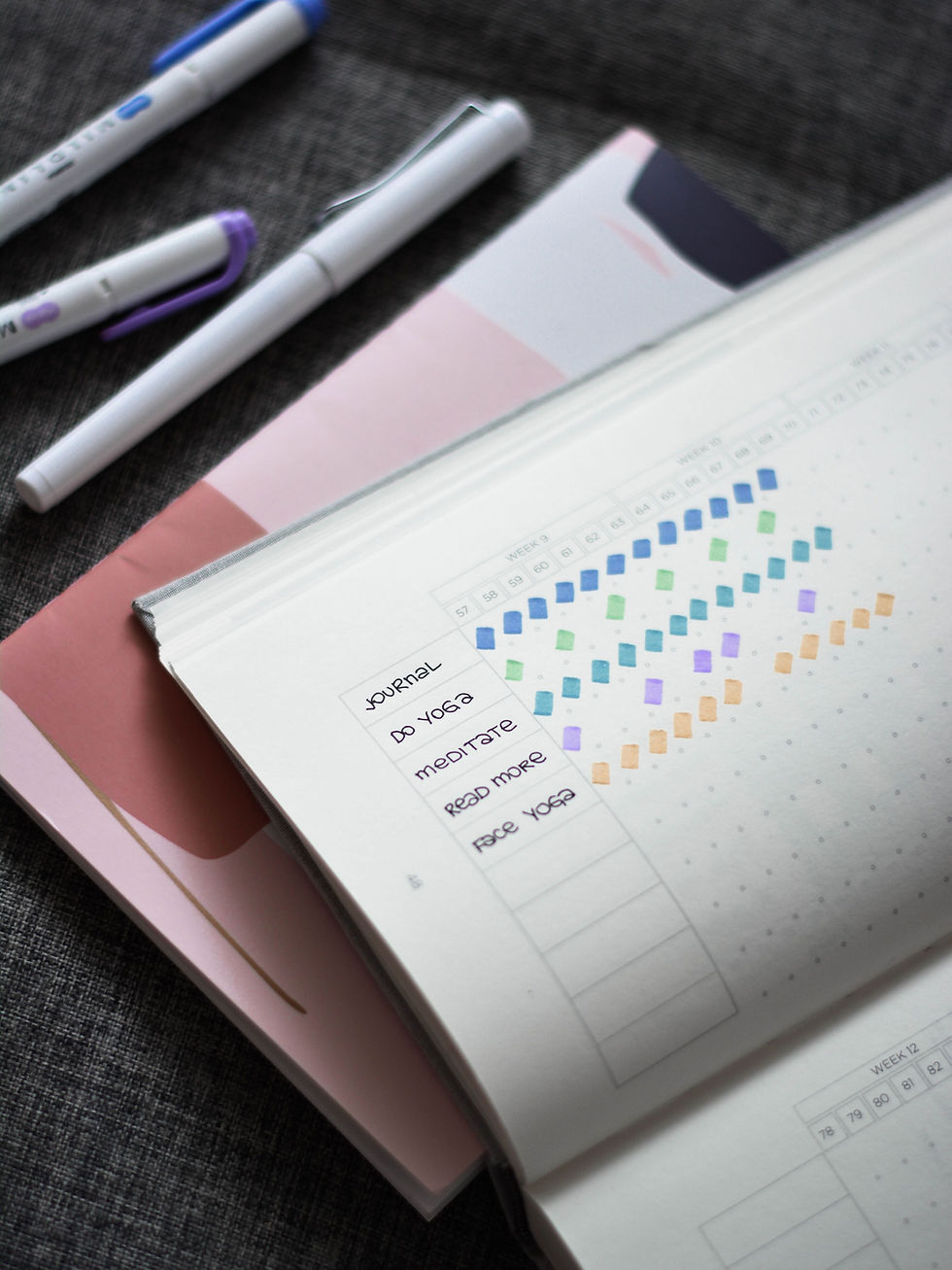Have you ever been inspired to change or improve an aspect of your life, thinking THIS is it, this time I'm going to stick with it!...Only to find yourself unmotivated and disheartened 2 weeks later? So you berate yourself, telling yourself you have no self-control, you're rubbish at everything, you should just give up!
If you can relate to this situation, I would like to introduce a different approach to habit change - one that feels caring, motivating, and empowering. This approach is: self-compassion.

Self-compassion researcher Kristin Neff suggests that the top reason people provide for why they aren’t more self-compassionate is the fear of being too easy on themselves - "Without constant self-criticism to spur myself on, won’t I just skip work, eat three tubs of ice cream and watch Oprah reruns all day?" In others words, isn’t self-compassion just the same thing as self-indulgence?
Let's first address the elephant in the room - does self-criticism actually work as a successful motivation approach? Research suggests that highly self-critical individuals are far more likely to experience anxiety and depression. They also exhibit lower self-confidence in their abilities, which undermines their capacity to succeed.
The habit of self-criticism creates a fear of failure, resulting in self-critics who stop trying to achieve their goals because the failure is deemed so unacceptable. More troubling still is that self-critics may struggle to identify areas of improvement, because subconsciously they are aware that self-punishment will occur if they admit the truth. Much safer to deny the problem.
Furtherly, due to the neuroplastic nature of the human brain (the ability of the brain to “re-wire” itself in response to learning or experiences), the more we engage in patterns of thinking and behaviour, the more easy it is to slip into these narratives - this is true of negative and positive learnings.
Enter self-compassion.
The aim of compassion is to alleviate suffering. When we feel compassion for our own pain — particularly when the pain comes from maladaptive habits and behaviours — we have a deep, instinctive desire to heal this pain. We feel called to make changes and improvements that will help us suffer less.
While the motivational power of self-criticism stems from fear of self-punishment, on the contrary, the motivational power of self-compassion comes from the desire to be healthy, to love and care for ourselves.
Importantly, self-compassion recognises that failure is not only inevitable, but it is also our best teacher, an experience to be explored rather than avoided. Self-compassion also allows us to gain awareness of areas of personal weakness by acknowledging that imperfection is a natural part of what makes us human.
So self-compassion is not just us being easy on ourselves. It’s a way of nurturing ourselves, just as we would a friend or child, so that we can reach our full potential.
Research On Why Self-Compassion Is Key To Sticking With Healthy Habits
Self-compassion is positively associated with health-promoting behaviours (including eating habits, exercise, sleep behaviours, and stress management).
Self-compassion improves physical health, suggesting that taking a kind, accepting and mindful stance toward one’s flaws and failures may have benefits for reducing stress and promoting health behaviours.
Self-compassion has a protective role in healthy eating behaviours and self-control impairments resulting from economic scarcity, which offer promise for promoting healthy lifestyles.
Self-compassion is positively associated with diet quality, intuitive eating and higher body esteem, and negatively associated with emotional eating.
With the self-compassion approach we can work on improving ourselves, not because we’re unacceptable as we are, but because we want to thrive and be happy.
Next Steps

Hi I'm Molly, I'm a UK-based Nutritional Therapist (DipION, mBANT, CNHC) and Self-Compassion Coach (MSc) serving my community in Harpenden and online. Here in my little online home, you'll discover the benefits of nutritional therapy and complementary therapies for autoimmune disease and chronic illness.
Want to understand more about nutrition for autoimmune diseases? Download my free recipe book and discover 12 Nutritionist-Certified Recipes to Help Alleviate the Symptoms of Autoimmunity & Chronic Illness.
If you’re ready to take the next step and get back to feeling amazing again, please book a FREE 1:1 call, in which I’d love to talk to you about your own individual diet, share with you some personalised advice, and answer any questions you might have.
#autoimmunity #autoimmunehealth #autoimmunenutrition #autoimmunedisease #functionalmedicine #nutritionaltherapy #nutritionaltherapyharpenden #nutritionaltherapist #nutritionaltherapistharpenden #lifestyle #healthylifestyle #healthyhabits #selfcriticism #harpendennutritionist #harpendennutritionaltherapist #harpendennutrition
댓글